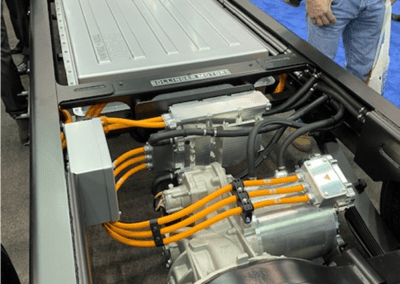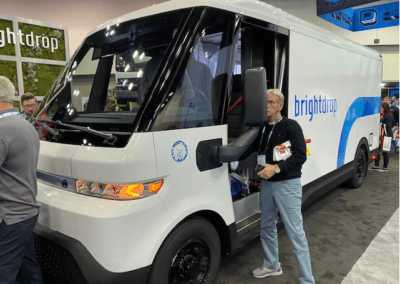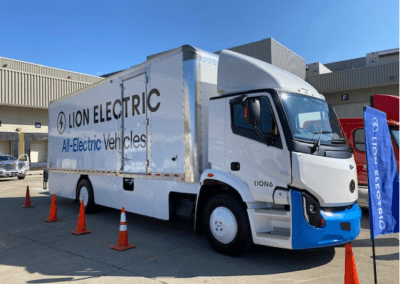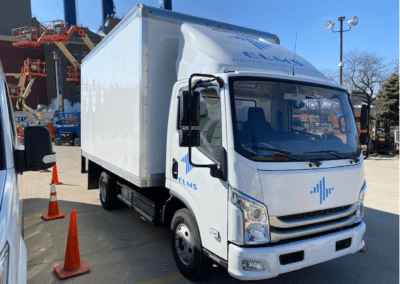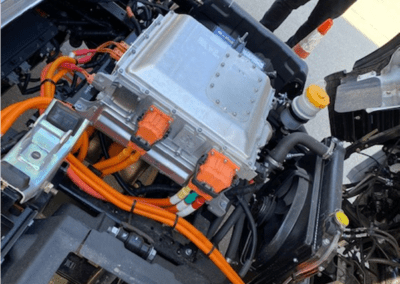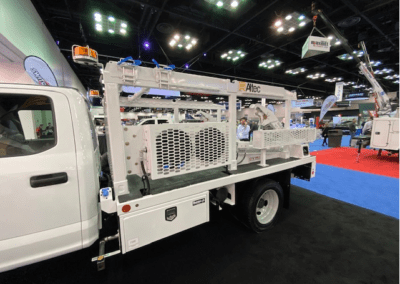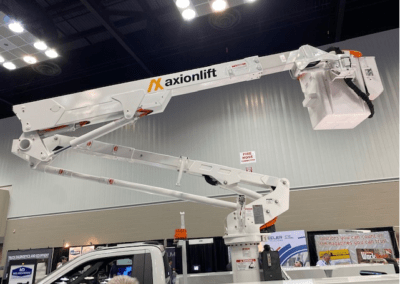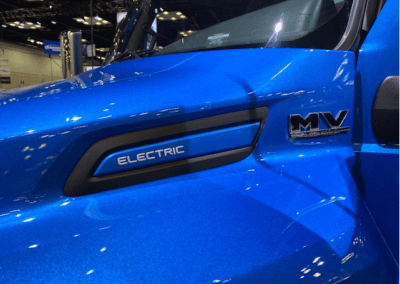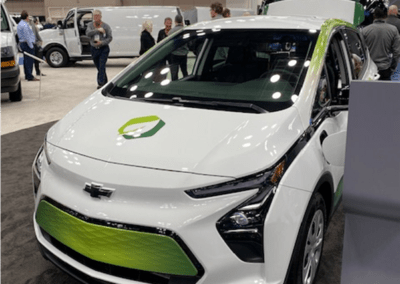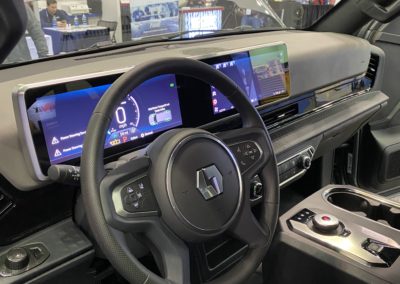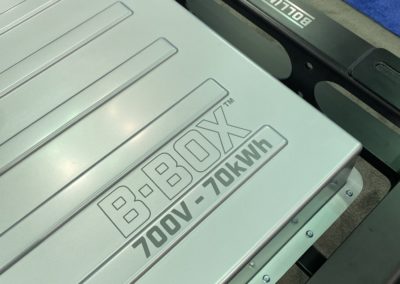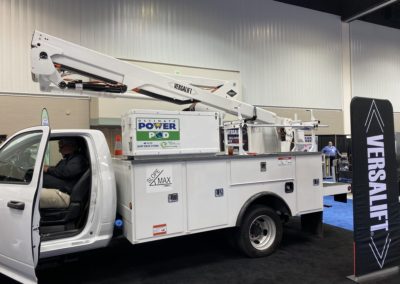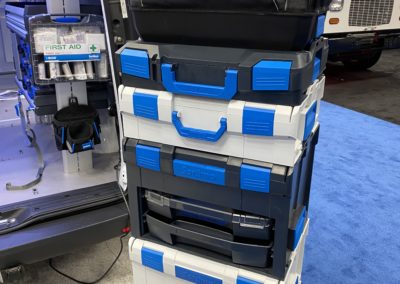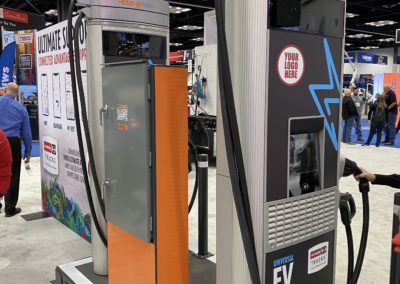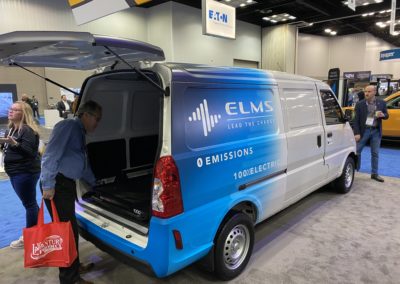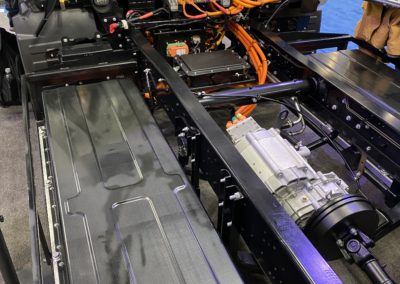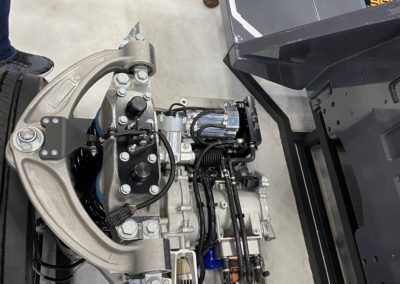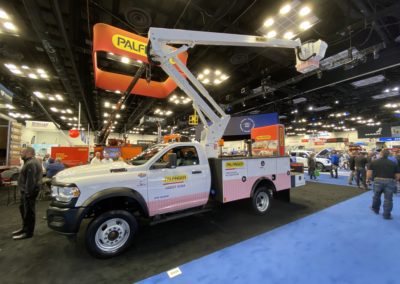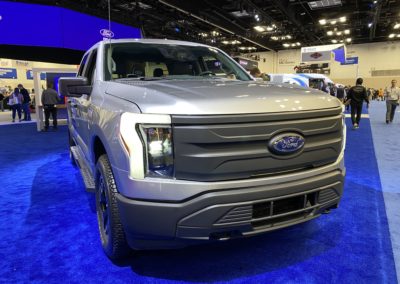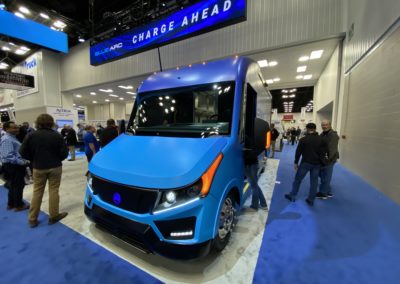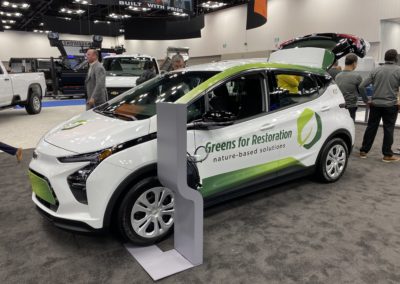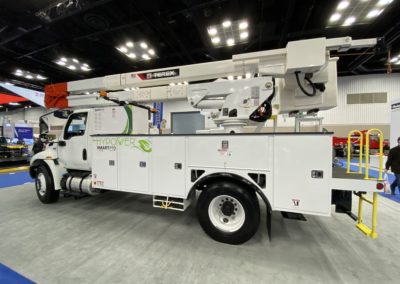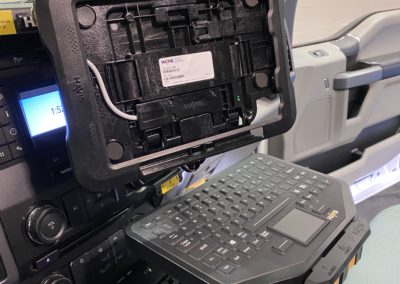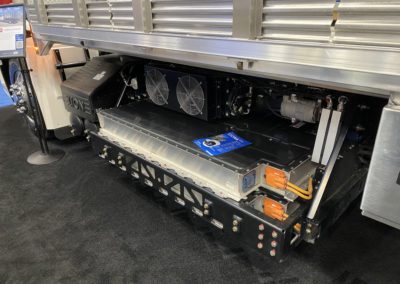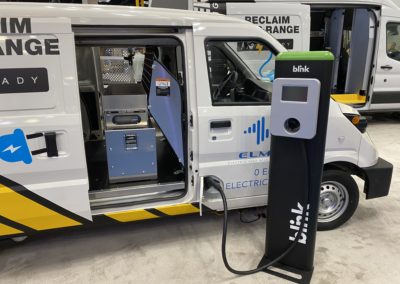As we progress towards our goal of achieving Net Zero by 2050, we have been implementing changes to our operations to reduce our carbon emissions. One of the methods identified to reduce our carbon emissions was electrifying our fleet.
Intermediate/Light Fleet:
For the last several years BELCO has been transitioning the Company’s fleet of vehicles to EVs. BELCO operates an intermediate/light vehicle fleet of 31 vehicles, of which 26 or 84% are EVs. The five non-EVs will be retired from the fleet once they have reached the end of their useful lives and replaced with EVs.

Heavy Fleet:
BELCO also operates a heavy vehicle fleet which includes specialty vehicles like bucket trucks, recovery trucks, pole digger trucks and winch/crane trucks. While the intention is to transition this fleet to EVs, currently there is no viable option to meet the company demands for these vehicles. Given the rapidly developing technology in these vehicles, we hope to start the transition to an electric heavy fleet in 2024.

However, while there is currently not a viable option for a fully electric heavy fleet, BELCO’s bucket trucks have hybrid aerial devices, so when a bucket truck is parked and the bucket/aerial device is in use it is powered by battery and therefore not using fuel. BELCO also operates ten fork lifts, five of which are now electric. The remaining five fork lifts will be replaced with electric fork lifts as they reach the end of their useful operating lives.
This investment in transitioning to a fully electric fleet demonstrates our commitment to the health of our environment and community.

As part of our ongoing effort to stay up-to-date on fleet electrification advancements, technologies and opportunities our Logistics & Fleet Manager, Jason Simons, attended the Work Truck Show and Green Truck Summit in Indianapolis, Indiana this year in March.
The Work Truck Show, the largest in North America, showcases the latest in Electric Vehicles (EVs) as well as many suppliers and vendors for a range of products for commercial vehicles. For BELCO it was an opportunity to asses new electrical utility products and emerging technologies that could assist in Company operations and the transition to net zero carbon emissions.
While at the show, Mr. Simons attended the Green Truck Summit which included presentations by global players in the industry such as Liane Randolph, Chair of the California Air Resources Board and Tim Campbell, Managing Director at Campbells Consultancy which helps commercial vehicle fleets make the transition from diesel to electric/hydrogen fuel cell, who presented on global green vehicle technology and fuel cell technology.
Mr. Simons said: “As part of the Company’s commitment to sustainability, BELCO has a goal to convert the Company’s vehicle fleet to fully electric by 2026. The trade show was an opportunity to network with like-minded people in the industry, discuss challenges and ideas, all of which helps prepare for our ongoing transition to EVs. BELCO is also starting the process of designing the Company’s next generation of EVs which takes time and research in order to do it effectively, and the trade show provided opportunities to assess the products and technologies that are available.”
The conference also provided insight into potential challenges BELCO might face such as how hydraulic systems will have to be integrated onto an all-electric platform.
While at the conference, Mr. Simons attended additional “Breakout Sessions” presented by industry personnel. One session on fleet transition to EVs by ComEd, one of the largest power companies in the US, was particularly helpful as, similar to BELCO, fleet maintenance is done in-house on more than 3,600 vehicles. ComEd has a plan to electrify 30% of their fleet (1000 vehicles) by 2025 and 50% (1500 vehicles) by 2030. A session on EV maintenance and charger maintenance also provided great insight given BELCO’s transition to EVs.
Mr. Simons also met with multiple aerial lift manufacturers that were new to BELCO and learned of new technologies including the use of telematics (combined vehicle/GPS data and computer technologies), which he said could be a beneficial approach to use for BELCO’s fleet in the future.
In terms of green innovation for commercial fleets that was new and of interest for the utility industry, Mr. Simons said: “While there was a large shift to EVs this year giving us the opportunity to talk to new start-up companies, what was of most interest was the challenge to balance vehicle range and cost. This included discussions on current battery technology, supply chain issues and the effects it may have in the future. As it relates to the utility industry, there were numerous innovative solutions to help traditional diesel combustion aerial lift trucks be “more-green” with use of supplementary Li-ion battery systems which are similar to our current hybrid trucks but more advanced.”
Mr. Simons was also privileged to join an invite only dealer conference from Isuzu, BELCO’s current truck provider who are planning an EV to be released in late 2023/early 2024.
Mr. Simons commented: “This is great news and timed perfectly for our transition. We have used Isuzu for nearly 20 years with good success and excellent customer support. While the transition to entirely EVs may be challenging based on the current battery technologies, I am confident in the prospect of converting the majority of the fleet (bucket trucks, utility vehicles etc.), but the specialty vehicles like large diggers and forklifts might not be available within the next two to three years.”
BELCO President Wayne Caines said: “BELCO was pleased to have Mr. Simons once again attend the Work Truck Show to investigate the latest technologies that will assist the Company as we transition our fleet to EVs. Transitioning the fleet aligns with our sustainability goals and is just one of the steps on our journey to become Net Zero by 2050. I look forward to keeping the public informed as to our progress and am pleased that BELCO is one of the most advanced utilities in the world when it comes to using EVs for our daily operations.”

